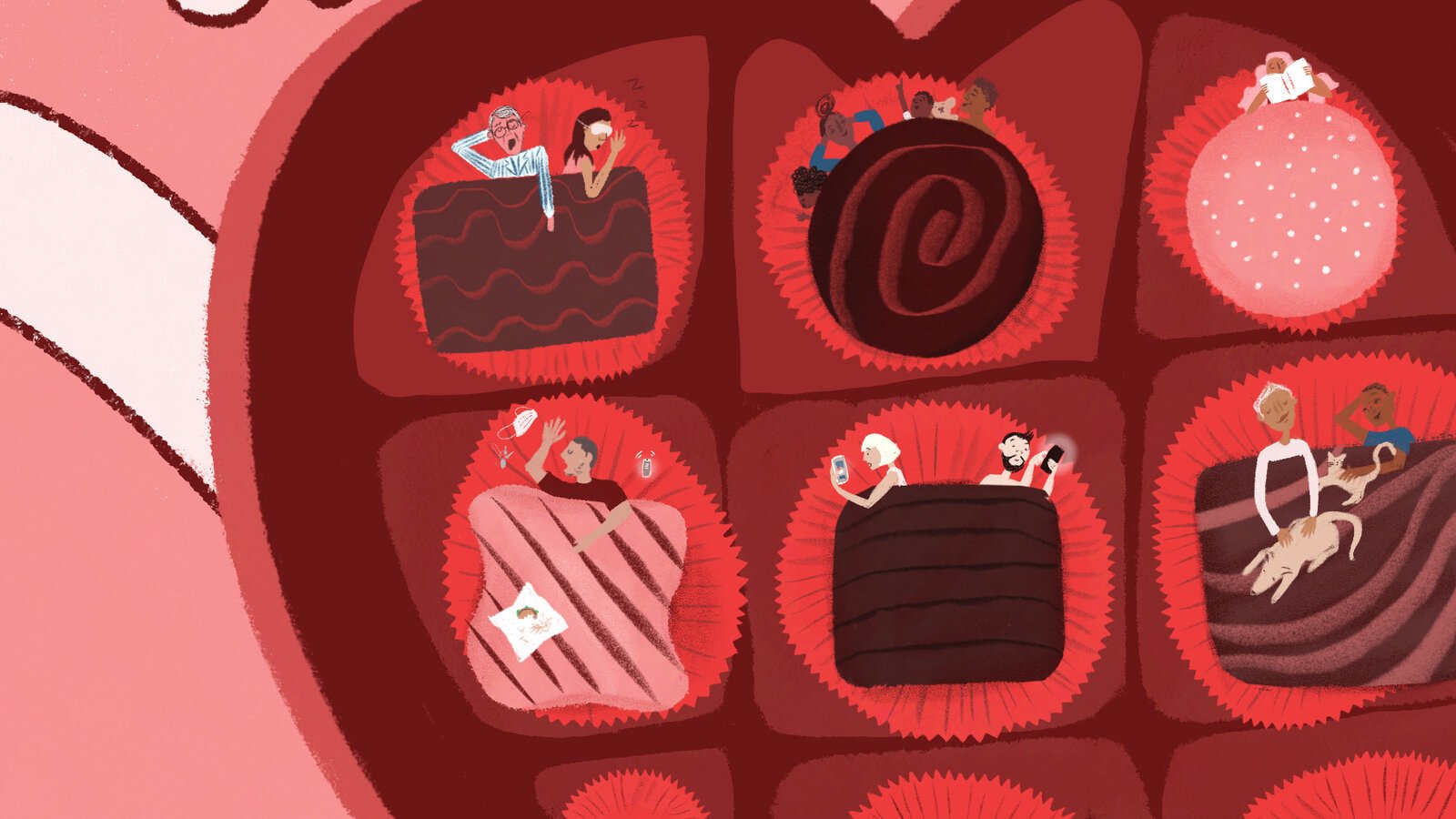Editor’s Note: FII’s #MoodOfTheMonth for February, 2022 is Redefining Love. We invite submissions on the many layers of love, throughout the month. If you’d like to contribute, kindly email your articles to sukanya@feminisminindia.com
Valentine’s Day, as we know it today, is the culmination of two different historical events into one: Lupercalia and the life and times of St. Valentines. It appears that Lupercalia was an ancient pagan festival in Rome, centered around peculiar fertility rites, marked by violence, charged often with sexual undertones and sacrificial rituals.
This festival was celebrated during the middle of February to mark the advent of springtime. However, its celebration was dramatically transformed following the rapid spread of Christianity, when the Roman Catholic church, purged the paganism of Lupercalia on and used it to commemorate the martyrdom of St. Valentine, who by some accounts was a priest and a physician and the patron saint of lovers, epileptics and beekeepers. This then is the story of the making of Valentines Day, as we now know it.

It is rather paradoxical that the culture and festival that owes its genesis to the Graeco-Roman world has simultaneously forgotten the other philosophy of it: That there are as many loves as our relationships. The Greeks had 8 different words for Love: Agape i.e. unconditional love, almost spiritual in its essence; Eros, passionate love; Philia affectionate love, the kind of love one would feel for friends; Phiautida, self-love; Storge, familiar love such as parent-child bond or sibling bond; Pragma, enduring love; Ludus, playful love and Mania, obsessive love.
It is true that so much can get lost in translation and while the cultural context of ancient Greece in which this “love-language” developed is drastically different from the world we inhabit today, it is nonetheless significant for it underlines that love is a multidimensional and multifaceted emotion which must be unboxed from the heterosexual and heteronormative paradigm we understand it in today.
But abstractions and emotions aside, one only has to look at the narrative woven around Valentine’s week to decipher the consumption and performance oriented nature of love in this entire structure. The week starts on 7th February with Rose Day and is followed by Propose Day, Chocolate Day, Teddy Day, Promise Day, Hug Day, Kiss Day and finally Valentine’s Day. Each day seems to equate itself with expression of love by the explicit or implicit notion of purchase of a certain commodity
It is perhaps this obsession of equating and reducing “love” to what the Greeks understood as “Eros”, that we tend to find it “bizzare” when groups of friends wish each other, Valentines.
The commercialisation of the idea of love is a significant marker of the capitalist world we live in which tends to amplify the “intensification of division of labor and specialization of skills”. Love, in this capitalist web, then must be stripped bare of its multifaceted and multidimensional nature and be reduced to a singular and niche idea, so it can be easily commodified and then marketed.
Also read: The Loves Of My Wildest Dreams: Valentine’s Day Plans And Beyond

But it is not just the stripping of love from its many layers that is problematic but the consequence of it, which then hierarchises loves in a way where “romantic love” rests at the top pyramid as an ideal that everyone must strive for. Such a narrative on one hand pedestalises heterosexual notions of love on one hand and discounts queer love and love performed and understood by marginalised gender identities on the other hand.
Besides this, the constant consumption of “romance” the way it reaches us from copious amounts of advertisements, films, fiction and other forms of media instills a sense of ‘void’ (when one isn’t or shouldn’t be there) in our lives in the absence of a romantic partner.
But abstractions and emotions aside, one only has to look at the narrative woven around Valentine’s week to decipher the consumption and performance oriented nature of love in this entire structure. The week starts on 7th February with Rose Day and is followed by Propose Day, Chocolate Day, Teddy Day, Promise Day, Hug Day, Kiss Day and finally Valentine’s Day.
Each day seems to equate itself with expression of love by the explicit or implicit notion of purchase of a certain commodity. In fact, one only has to Google ‘Valentines Day Sale’ to get hundreds of suggestions on a variety of gifts (think jewelry) that one could buy to ‘show love’ to one’s partner.
Each of us deserves to love and be loved. But often, this is not as simple as it sounds on paper. To be able to love and for that love to be understood, is a privilege which society confers on a select few. To liberate us then from the performativity and consumption of love, through the singular lens of romance, perhaps a revolution is incumbent. One whose politics is inspired by bell hooks’ notion of radical love, a love that redefines not only the narrative of love but also in the process its expression, articulation and performance

Exchange of gifts and having something tangible to know and feel loved isn’t the problem. It is a rather valuable modicum of expressing love to people who see this act as constitutive of their love language. What is unfortunate then is the hyper focus and even privileging of one love-language characterised by a gift giving economy, over the others.
Economic Times, in its analysis of the market has underlined how companies like Titan, Archies and Nestle show a remarkable gain in profits during the quarter coinciding with the Valentine’s Week. However, the splurging on which the profits of these industries is based according to a 2016 survey by Giftease.com shows a rather gendered nature to spending, with men being the bigger spenders. Perhaps, the gender norms of masculinity that patriarchy encodes for men, could be an indicator to this finding.
This is not just an economic issue but also a social one. In a world where mental health issues continue to be a taboo and men’s emotionality is often kept on the back burner, we have limited documented evidence on the psychological impact that these norms of masculinity around love and celebrations, like Valentine days, have on men. But perhaps, findings in other countries and social settings could shed light on the same.

Each of us deserves to love and be loved. But often, this is not as simple as it sounds on paper. To be able to love and for that love to be understood, is a privilege which society confers on a select few. To liberate us then from the performativity and consumption of love, through the singular lens of romance, perhaps a revolution is incumbent.
One whose politics is inspired by bell hooks’ notion of radical love, a love that redefines not only the narrative of love but also in the process its expression, articulation and performance.
Also read: The Parenting Philosophy Of bell hooks: There Is No Love Without Justice
Featured Image Source: The New York Times
About the author(s)
Harshita is a postgraduate student at the University of Delhi. She is interested in areas of Gender, History and Social History. Her research interests are at the intersection of gender, power and social categorisations.




